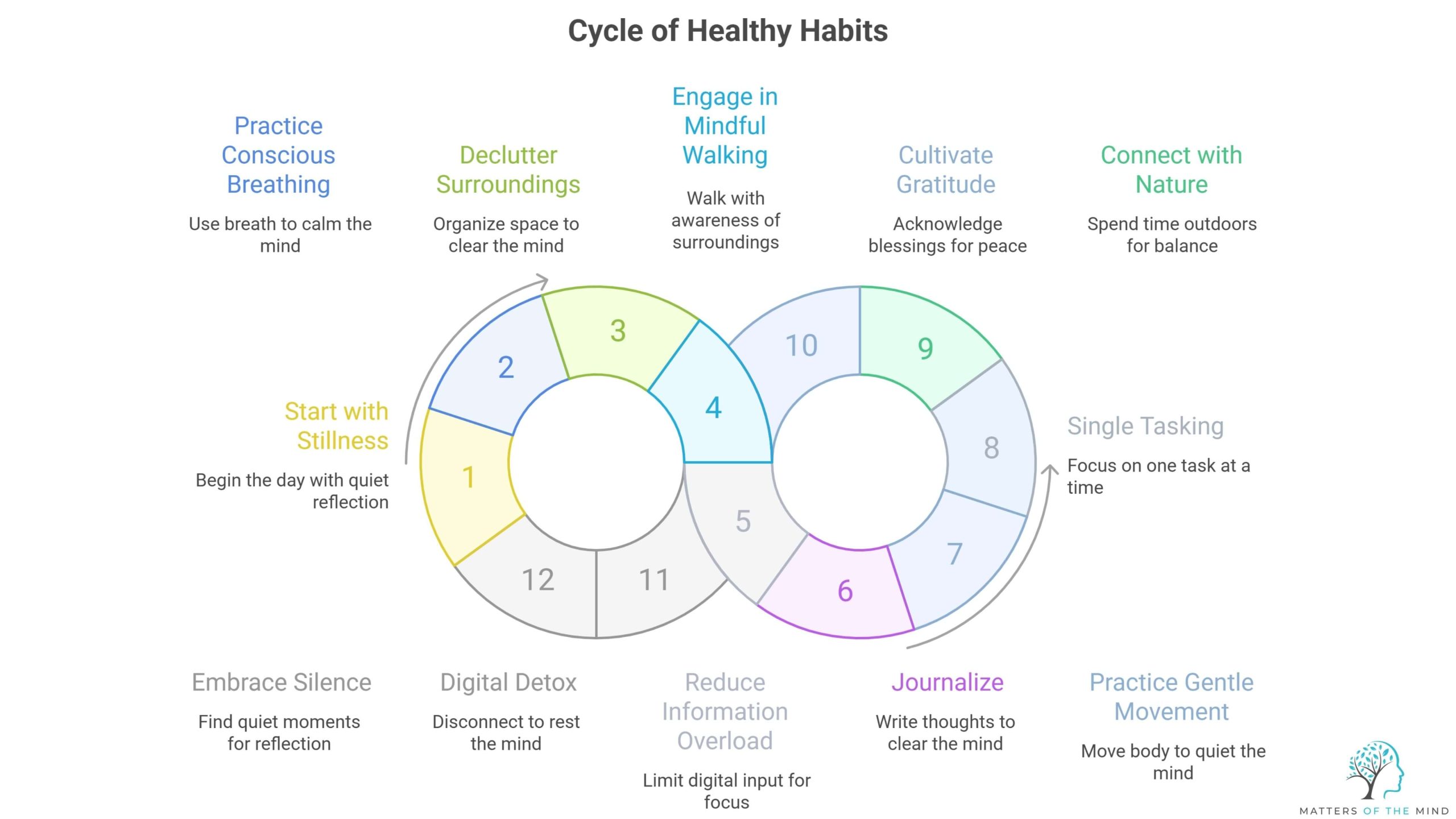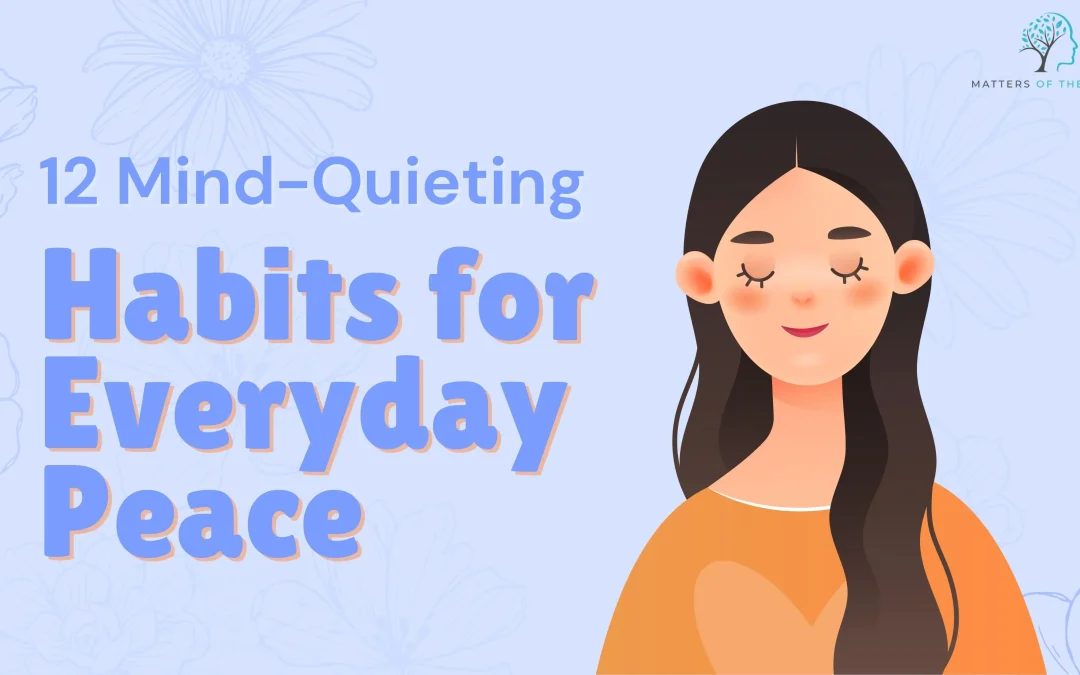Healthy Habits to Build A Peaceful Life
Inner peace is crucial to leading a better and healthier life. Below are the top healthy habits that a person can integrate for a better mental well-being.

1. Start the day in stillness
2. Practice conscious breathing
Breath is one of the most powerful tools for calming the mind. A few minutes of slow, deep breathing can provide instant relaxation and help reduce stress, as well as regulate emotions. You can try a simple technique called the 5-5-5 method. This is defined as breathing in deeply through your nose for 5 seconds, holding your breath for 5 seconds, and lastly breathing out slowly through your mouth for 5 seconds. This shift in rhythm not only grounds you in the present but also tells your nervous system that it is safe to relax.
3. Declutter your surroundings
4. Engage in mindful walking
5. Reduce information overload
6. Journalise
7. Practice gentle movement
8. Single tasking
9. Connect with nature
10. Cultivate gratitude moments
11. Practice digital detox
12. Embrace silence
Final Thoughts
If you’re navigating stress, anxiety, or seeking deeper ways to quiet the mind, professional guidance can make all the difference. Dr Kavita Deepak-Knights, a clinical psychologist based in Windsor, Berkshire, offers compassionate, tailored support to help you restore balance and well-being. This will cultivate a sense of peace and bring you towards mental clarity.



